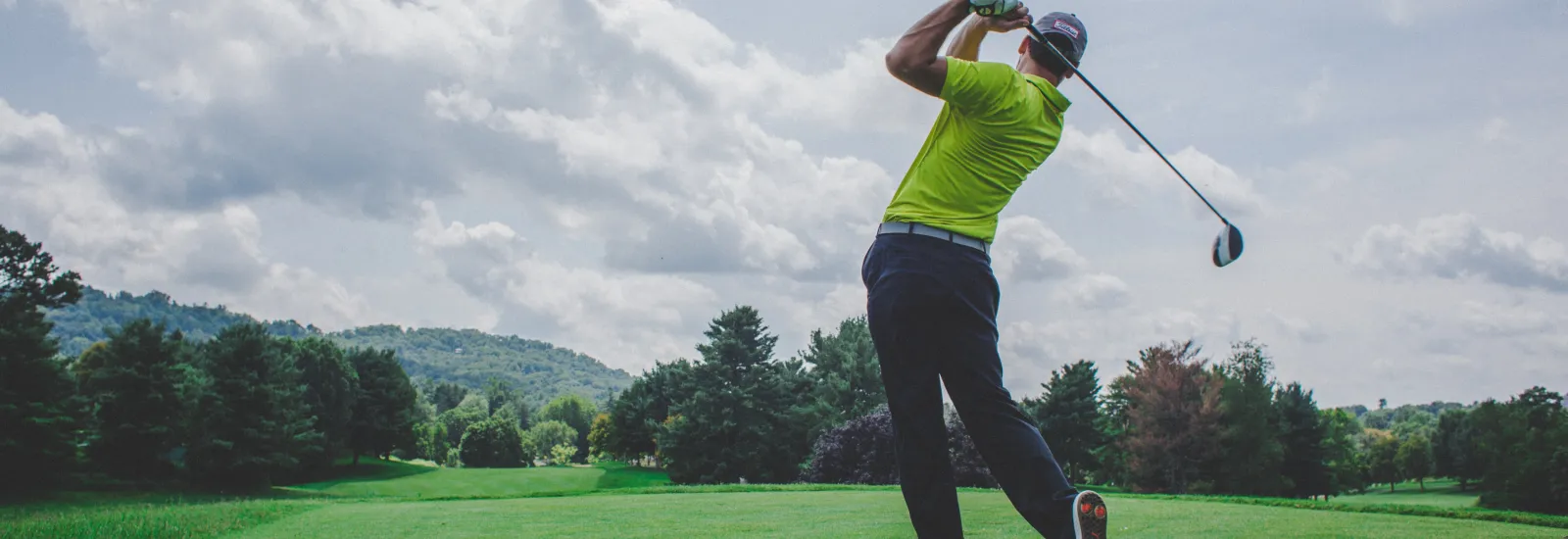
Are Orthopedic Injuries Impacting Your Golf Game?
Golf is a great activity for people of all
ages - it promotes physical activity and socialization while being a fun way to
spend time outdoors. If you're one of the millions of Americans who play golf,
you might also know that the sport can lead to the occasional ache or pain.
Sometimes, these go away on their own with a
little RICE: rest, ice, compression, and elevation. Other times, they could be
an orthopedic injury best addressed by a doctor. Read on as Dr. Mario Lee
at Reid Health shares information on common
golf-related injuries and when you should consider seeing a doctor.
What are the most common orthopedic golf
injuries?
An orthopedic injury or orthopedic pain is one that affects your bones, joints, or the musculoskeletal system. This could range from a sprain, to osteoarthritis, or even a broken bone. When you play golf, you put your musculoskeletal system under strain - and occasionally this can lead to soreness or even an injury. The most common golf-related pains and injuries are related to:
1. The
hands, wrists, and elbows. Golfing
is a good workout for your arm muscles - as you stabilize and direct your
swing, your biceps, triceps, forearm muscles are all working in tandem to
execute that perfect follow-through. As a result, you might experience some
mild muscle pain - this is normal and should go away with rest and ice.
Other pains might come from overuse or an inefficient technique like "casting"
(releasing the club too early in the downswing) or "chicken wing" (too much
bend in the lead elbow). While these often go away on their own, they might
signal an injury or a condition like carpal tunnel, osteoarthritis, or tendonitis. If you experience severe
pain in a joint, muscle, or tendon, reach out to an orthopedic doctor for
advice. They can help you to understand what's causing your pain and get you
back to golfing sooner.
2. The
shoulders and upper back. Your
shoulders go through dynamic movements
when you swing your club. They also absorb the force of impact from the ball or
ground. All of this can add up to a
painful golf swing. Rotator cuff tears, impingement, and strains are all fairly common golf-related shoulder injuries.
If you experience a painful swing, you should work with an orthopedic doctor or
surgeon to address the underlying issue.
3. The lower
back. Standing, walking, swinging,
sitting in the golf cart: there are many potential contributors to golf-related
lower back pain. These lower back pains can even create a snowball effect - low
mobility could cause you to have a reverse spine angle (RSA) swing (too much
spine extension in the backswing), which in turn could cause further lower back
pain.
Disc injuries, muscle strains, and even bone fractures are all possible causes
of your back pain - and in any of these cases, it's a good idea to work with a
doctor who can help you regain mobility and relieve pain.
When should I see a doctor for my
golf-related pain or injury?
If you find that pain is affecting your daily
life, your ability to golf, or even your passion for golfing, it might be a good
time to make an appointment with Reid Health Orthopedics and Spine. Together,
you and your doctor can identify what is causing your pain and develop a
treatment plan (which might include a combination of physical therapy, bracing,
surgery, or medication) that can help you get back to loving the game.

